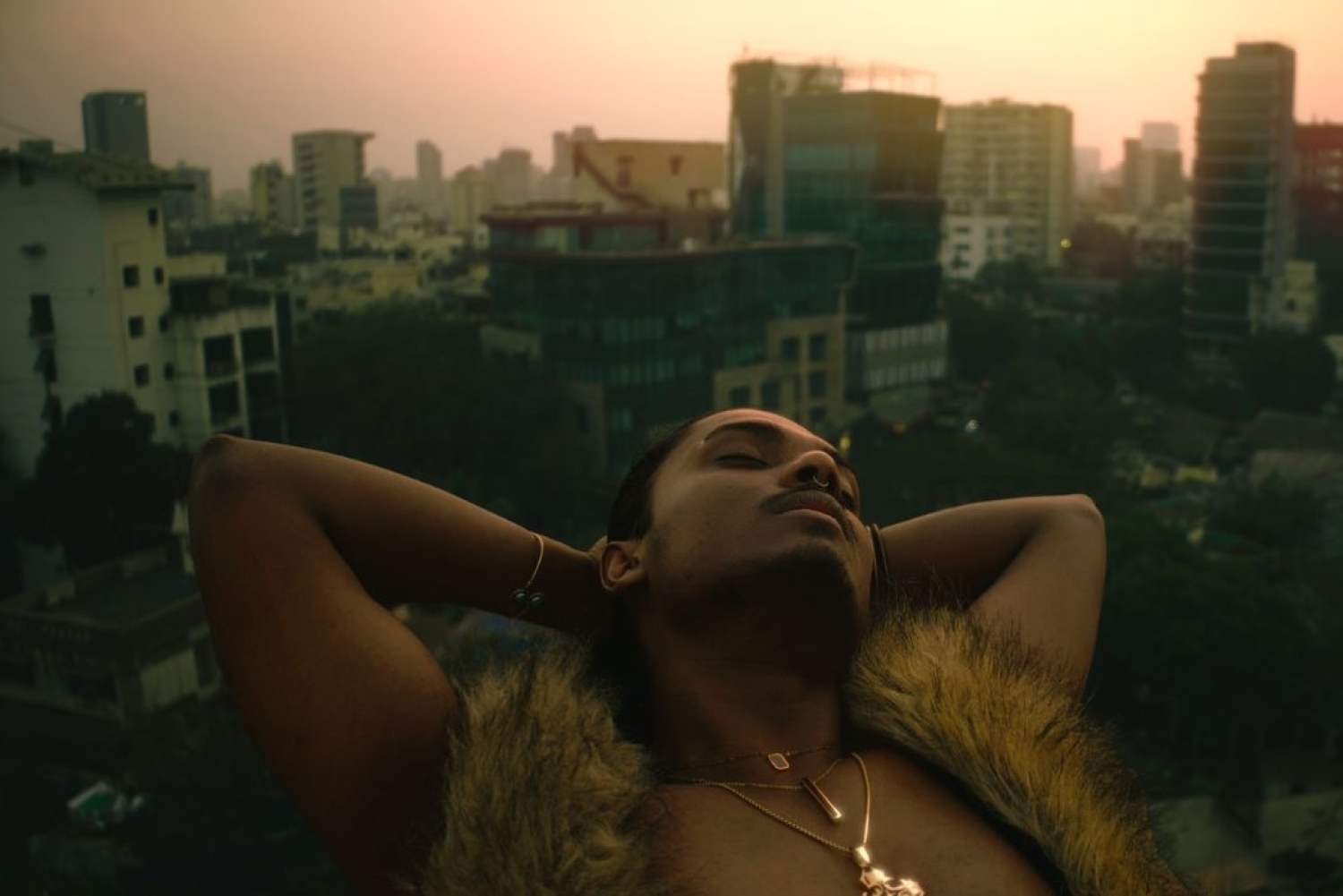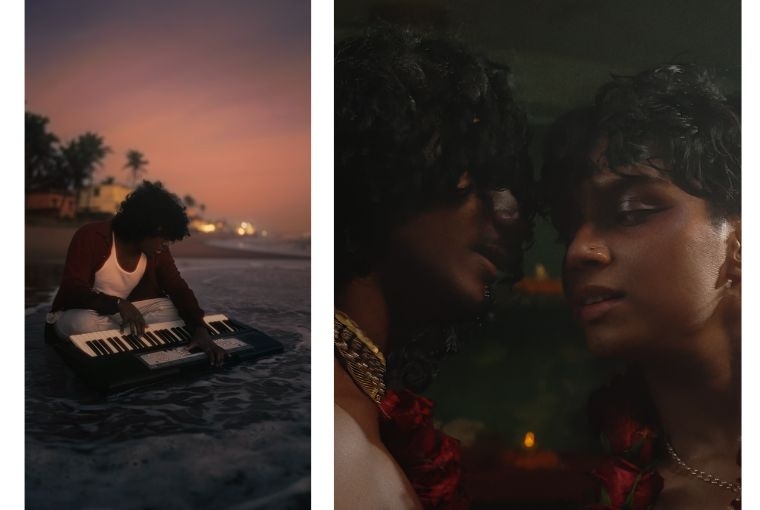

Aksomaniac, the moniker of singer-songwriter-producer Aron Kollassani Selestin, is a young boy from Trivandrum, Kerala, who started out playing piano and eventually found his voice somewhere between a pandemic, a skipped board exam, and a growing discomfort with self-expression.
‘I used to be very serious about being a pianist,’ he recalls. 'That was Western classical music. I wanted to be the best in my district, my state.' Alongside that discipline ran another habit—poetry. At the time, the two seemed like separate lanes. It was only during the lockdowns of COVID that the convergence became inevitable. With time on his hands, Aron began uploading covers to Instagram, checking multiple boxes at once. 'It was making me a better vocalist, a better producer, mixing/mastering engineer, editor, color grader... someone who was also in front of the camera.'
It didn’t take long for a friend to suggest that maybe it was time to make his music. That week, they finished four original songs over Google Meet. One of those tracks—written in 2020—would finally see the light of day in 2023. 'That was the watershed moment,' he says. 'I started using music as a platform to speak.'

The kind of honesty Aksomaniac finds essential in songwriting stems from his reverence for hip-hop and R&B. 'One thing about hip-hop is being true to yourself and speaking your truth in songs,' he explains. 'R&B later imbibed that too—people like Frank Ocean, Brent Faiyaz, James Blake, even Sabrina Claudio—none of them sugarcoat their feelings.' That transparency is what drew him to the genre, and it’s what anchors his work. 'Music became a way to journal. It’s the only kind of journaling that feels fulfilling to me.'
His latest single, Kanmashi exemplifies that approach—an R&B track that balances melancholy with intimacy, written around a single piano loop that struck a strangely beautiful chord. 'It felt weirdly happy and sad,' he says. That emotional ambivalence turned into a song about self-interrogation and sexuality, confidence and doubt—'a weird dance between being happy and sad.' The process was instinctual at first, but quickly took on meaning: 'That loop made me think about identity, about how masculinity and insecurity can coexist. And how sometimes asking those questions can be draining.'
As with all his work, visuals played a critical role. Shot with a group of close friends—most of whom are storytellers in their own right—the video for Kanmashi channels mythological imagery to talk about queerness in a way that’s both familiar and disruptive. 'We used Gandharva and Manmadhan, who are gods of love, music, and sex in mythology. Those are taboo topics now, but they’ve always existed in our stories. We just tried to tell them again—our way.'
Aksomaniac is just as exacting with his production as he is with his lyrics and visuals. When asked about his favourite collaborator, he doesn’t name a co-writer or a producer, but his mixing engineer, Circle Tone. 'He sees the whole body of work. Every song goes through him,' he says. 'He disagrees with me a lot, but our disagreements go deep, and they make the music better.'
He sees the mixing process not just as technical polishing but as the final stage of storytelling. 'That’s where you stop serving yourself as an artist and start serving the song, the audience. How loud something is, how soft it is—it all changes how the story is heard.'
Now working on music full-time, having left his computer science degree in its third year, Aksomaniac feels energized by the explosion of India’s independent music scene. 'We’re a country with so many languages, so many cultures. Indie music means there are fewer stakeholders, and more stories being told honestly.' He sees peers like Dhanji navigating a path that didn’t exist a decade ago, 'It’s going the other way around now. Artists are doing films after doing indie, not the other way around.'
His excitement isn’t just about the sound—it’s about the stories. 'I’m very excited to hear and absorb more. Music excites me, but I’m more excited for the stories. I get to understand people on a deeper level without even interacting with them.'
For someone whose entire creative process is rooted in personal exploration, it makes sense that connection—real, messy, unfiltered connection—is the point.
Words Harita Odedara
22.05.2025